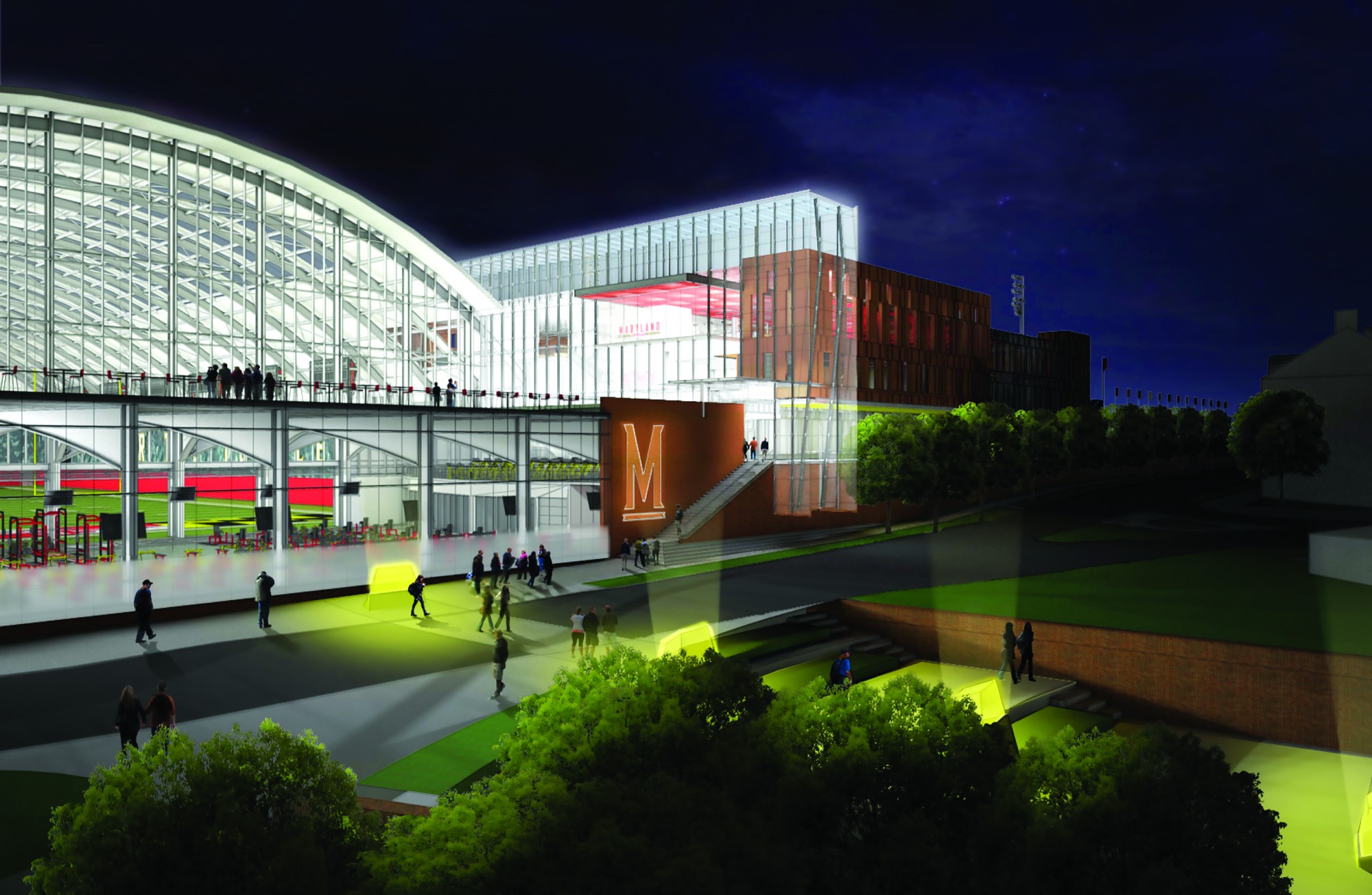Officials from the University of Maryland and the University of Maryland-Baltimore announced updated plans on Wednesday for what they expect to be the signature program stemming from the new $155 million Cole Field House.
The Center for Sports Medicine, Health and Human Performance, which “brings life” to the strategic partnership between this university and the Baltimore campus, will specialize in research on neuroscience and traumatic brain injuries, said UMB President Jay Perman.
An initial $3 million from the state of Maryland — provided by the MPowering the State initiative — will be invested into research conducted by experts from both campuses, according to a university communications news release. The center will also contain an orthopedic clinic open to the community that will provide high-level care for sports-related and orthopedic injuries.
“The Center for Sports Medicine, Health and Human Performance at Cole Field House will deliver to the state’s citizens the power of partnership,” university President Wallace Loh said in the release. “Bringing together clinicians and scientists from the state’s two biggest public research universities under one roof creates connections that will contribute to breakthroughs in human health.”
In addition to the $3 million from MPowering The State, officials expect the facility’s research to attract grants and donations in the future, university spokesman Brian Ullmann wrote in an email.
“We expect that seed funding will lead to new interdisciplinary, intercampus grants from a variety of foundations and other sources,” Ullmann wrote. “In addition, we envision tremendous interest from the alumni of both universities to support the research enterprise in the Center.”
The project will be co-directed by this university’s biology professor Elizabeth Quinlan and Dr. Alan Faden of UMB, Perman said. Dr. Andrew Pollak, chairman of the Department of Orthopedics at the University of Maryland School of Medicine, will oversee the development of sports medicine as well as clinical care.
“We intend for this to be a magnet facility for sports medicine in the greater D.C. metropolitan area,” Pollak said. “The same high-level sports medicine care that’s available to the elite athletes at the division one program at the University of Maryland … will now be available to the entire student body on [the] campus, to the greater campus community, the Prince George’s County community and the rest of the [D.C. area].”
Although the center will specialize in sports-related injuries as well as brain injuries, Perman emphasized that its resources are not limited to student-athletes.
“[The research] is terribly important for a lot of reasons,” Perman said. “First, it’s good for the athletes — but it’s much more than the athletes — and people should not think of [Cole Field House] as a football facility. It’s much more than that.”



